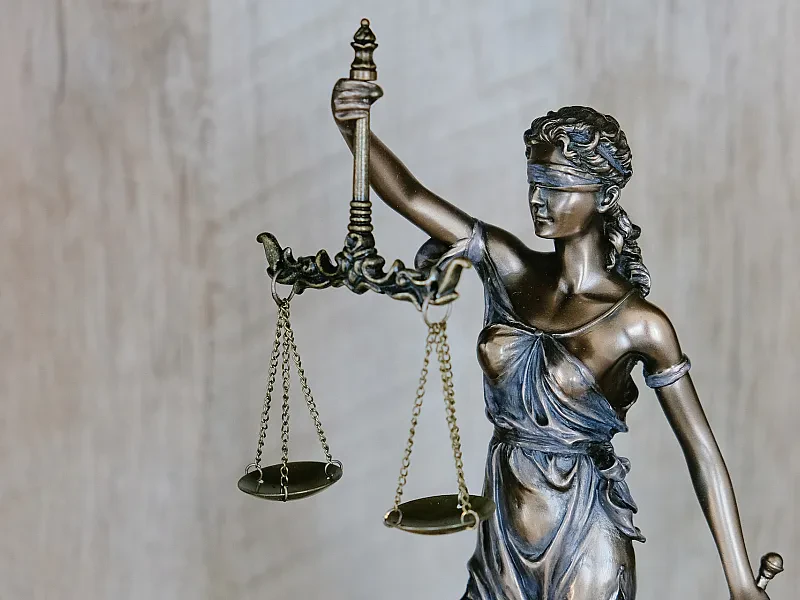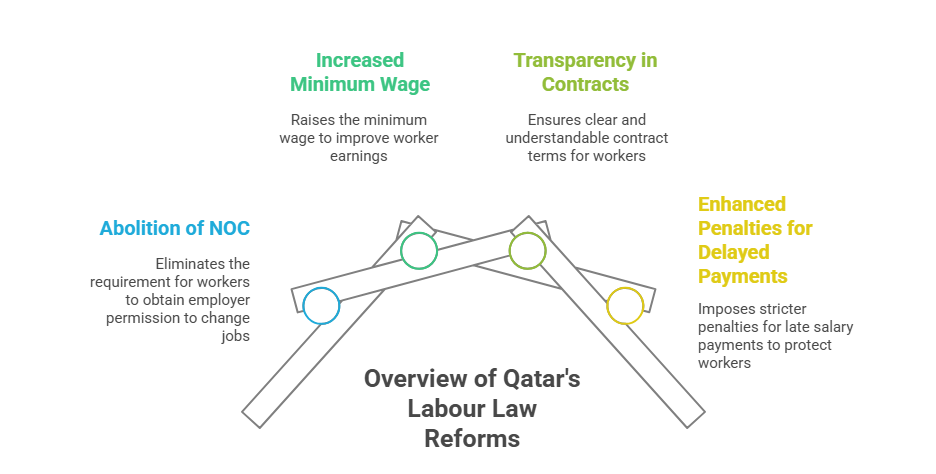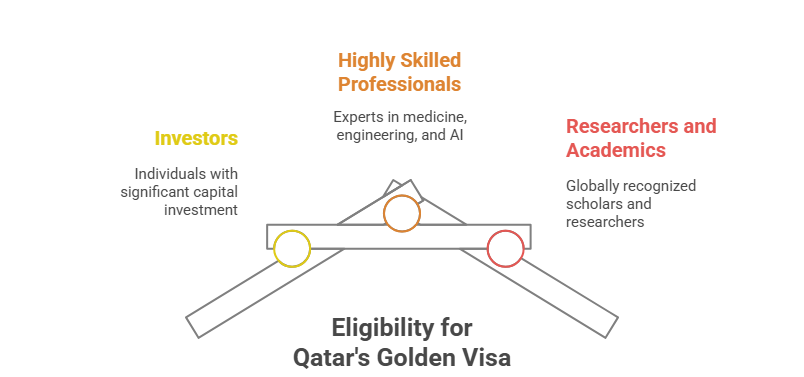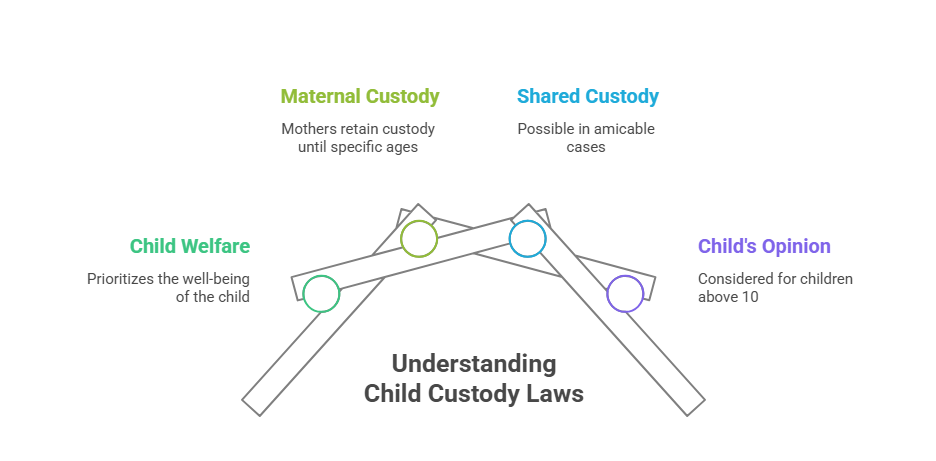
Table of Contents
Qatar is undergoing swift legal transformation. Comprehensive reforms of labor law, family law, data protection, company ownership, and cybercrime are reshaping the nation's embrace of transparency, workers' rights, and economic growth. Regardless of your expat status, entrepreneurial ambitions, or residency requirements, these reforms will impact everyone.
This article addresses the most common questions about the Qatar New Law 2025, categorized by the most crucial legal issues.
Labour Law Reforms in Qatar 2025
What are the major changes in the new Qatar labor law?
The new labor law in Qatar, implemented in early 2025, introduces significant worker-centric reforms. Key updates include:

These reforms are designed to align with the International Labour Organization (ILO) guidelines.
What is the minimum wage under the new law?
As of 2025, the national minimum wage in Qatar has been revised to QR 1,800/month, including housing and food allowances. Employers must provide written contracts and pay salaries through the Wage Protection System (WPS).
How are domestic workers protected now?
Domestic workers now benefit from regulated work hours, one day off per week, and overtime compensation. They are also covered under the new grievance redressal mechanisms.
Are there penalties for employers violating the labour law?
Yes. Employers face:
- Fines ranging from QR 10,000–QR 50,000
- Temporary or permanent suspension of their business license
- Blacklisting in severe cases
Residency, Visa & Immigration Law Updates
What does the new residency law introduce?
The Qatar New Residency Law allows longer-term stays for skilled professionals and investors. Some key changes include:
- 5- and 10-year renewable residency permits
- Easier transition from work visa to residency
- Pathway to apply for permanent residency in select cases
Who qualifies for Qatar's golden visa?
Qatar’s Golden Visa is now open to:

Are there changes to family visa rules?
Yes. The family visa application process has been streamlined:
- Income requirement adjusted to QR 15,000/month
- Faster processing via Hukoomi portal
- Online renewal and biometric appointment booking
What happens if someone overstays their visa?
The new law imposes steep penalties for overstay:
- Fines of QR 200/day
- Potential ban from re-entry for repeat offenders
- Mandatory exit within 7 days of notification
Business, Company, and Investment Law
What are the new company registration laws?
The Company Registration Law 2025 offers faster and more flexible setup:
- Foreigners can own 100% of businesses in most sectors
- Online company registration in under 7 days
- Removal of the requirement for local sponsors in free zones
Can I open a business remotely?
Yes. Qatar now supports remote business incorporation via its Invest Qatar and QFC platforms. Required documents include:
- Passport and ID copies
- Business plan and capital proof
- Company name approval
What are the rules for free zone companies?
Free zones such as Qatar Science and Technology Park (QSTP) and Qatar Free Zone Authority (QFZA) offer:
- 100% foreign ownership
- 0% income tax for 20 years
- Full repatriation of profits
Cybercrime, Internet, and Data Protection Law
What’s new in Qatar’s data protection law?
Qatar’s Personal Data Privacy Law (Law No. 13 of 2021) was updated in 2025 to include:
- Mandatory appointment of Data Protection Officers (DPOs) for large companies
- Consent-based data collection
- QR 1 million fine for data breaches
Can people be penalized for social media posts?
Yes. Under Cybercrime Law No. 14 of 2014 (amended 2025):
- Defamation or insulting posts = up to 3 years imprisonment
- Publishing false information = QR 500,000 fine
- Hate speech = up to 5 years in jail
How can I report a cybercrime in Qatar?
You can report incidents via:
- Metrash2 app
- Cybercrime Reporting Portal (Ministry of Interior)
- Local police station
Be ready with screenshots, email headers, or mobile evidence.
Family Law and Personal Status Changes
What are the highlights of Qatar’s new family law?
Qatar’s family law now provides:
- Equal inheritance rights for Qatari women in some civil cases
- More defined custody timelines post-divorce
- Recognition of foreign family court decisions under strict criteria
Is divorce easier now?
Divorce can now be filed online via the Mahkama Portal. Mediation is mandatory before court proceedings. Courts are also faster in issuing alimony, child support, and property division rulings.
How is child custody handled?
The updated law prioritizes child welfare. Typically:

What about marriage for expats?
Expats can marry in civil or religious courts. Documents needed include:
- Valid residence permit
- Certificate of no objection
- Medical certificate (issued in Qatar)
Criminal Law and Civil Rights
What are the major updates in the criminal law?
Criminal Law reforms in 2025 cover:
- Shorter pre-trial detention
- Bail rights for non-violent offenses
- Harsher penalties for repeat offenders
What are the new punishments for theft?
Theft penalties vary based on amount and intent:
- Under QR 10,000 = community service or fine
- Over QR 10,000 = 1–5 years in prison
- Armed theft = 10+ years imprisonment
Are foreigners subject to deportation under the new law?
Yes. Deportation is automatic for:
- Drug trafficking
- Repeated criminal offenses
- Illegal employment
A foreigner may appeal deportation under Article 77 of the Penal Code.
Frequently Asked Questions (Quick Summary)
| Question | Quick Answer |
|---|---|
| Is the new labour law effective? | Yes, effective from January 2025. |
| Do I need a Qatari sponsor to open a company? | Not in free zones or select sectors. |
| Can I apply for a golden visa online? | Yes, via Hukoomi or MoI portal. |
| Can I post political opinions on social media? | Be cautious. Laws prohibit criticism of government. |
| Is divorce allowed for foreigners in Qatar? | Yes, based on your country's laws or Qatari law. |
Final Thoughts
The Qatar New Law 2025 initiative is a bold step toward modernizing the nation’s legal and regulatory framework. Whether you're a local resident, foreign worker, business owner, or digital entrepreneur, understanding these updates is essential.
For detailed legal advice, we recommend consulting a licensed law firm in Qatar or referring to the Official Gazette and the Ministry of Justice website.
Disclaimer: This article provides general information and should not be construed as legal advice. Please consult with a qualified and experienced lawyer for personalized guidance regarding your specific situation.
